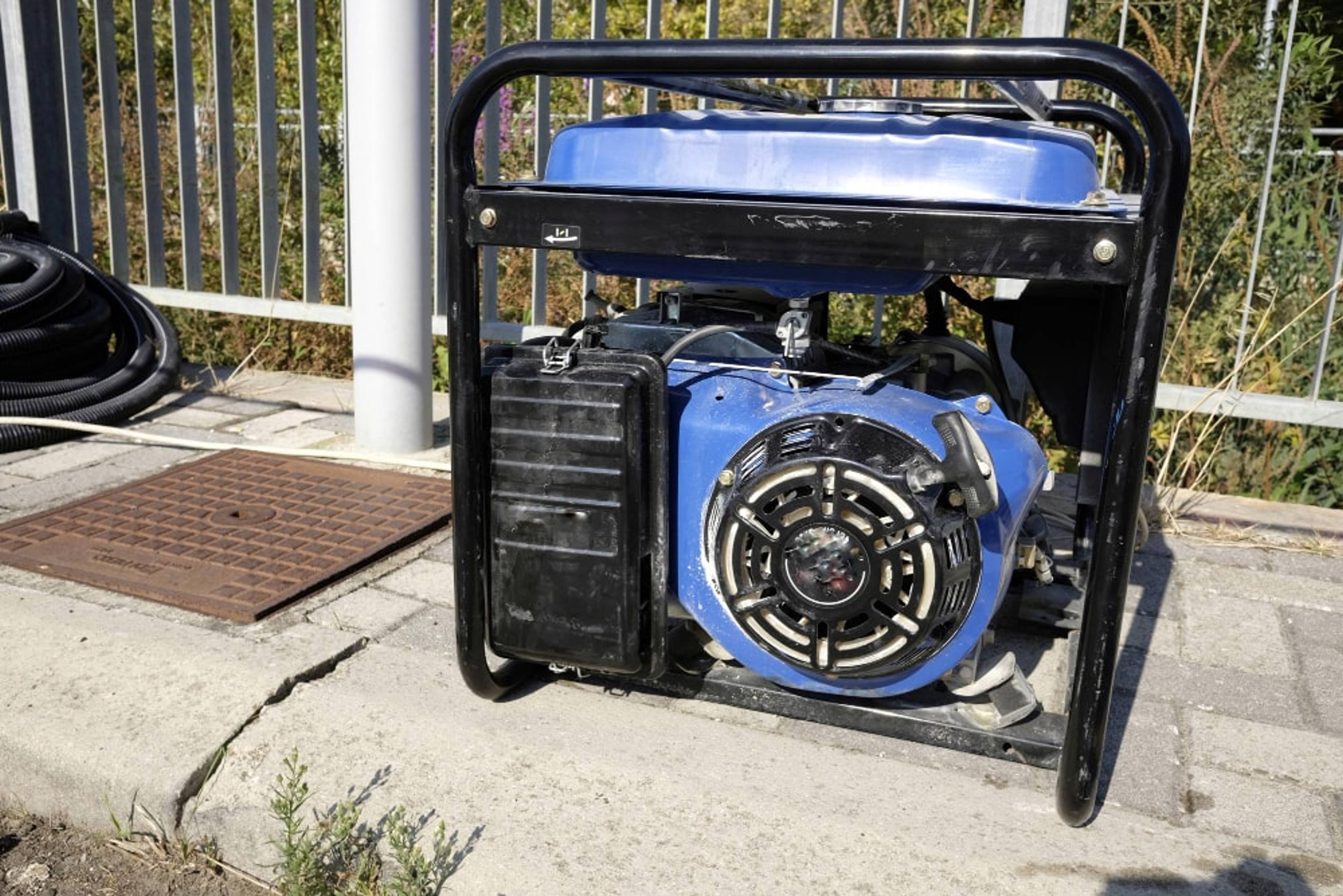What to consider before storing a generator
Before you store a generator in a storage unit, it’s important to confirm your storage facility’s policies, especially regarding fuel-powered items. Many storage units won’t allow generators with a full gas tank or fuel lines due to fire hazards, so it’s essential to drain any fuel before storing. This applies whether you use diesel fuel, petrol, or propane.
If your generator is petrol-powered, draining or treating the fuel is crucial. For short-term generator storage, you can use fuel stabilizers to keep the fuel from degrading, but for long-term storage, it's always best to completely drain the fuel tank and system. Untreated fuel left in the generator can lead to issues like gum formation, clogging small engine parts like the carburettor, and causing more damage over time.
We’ll cover how to safely store your generator, including essential maintenance tips and the best practices for different types of generators, from portable generators to diesel models.
Are you allowed to put a generator into storage?
Most facilities won't allow you to store gas. The type of generator you have will influence how you store it. Portable generators are popular due to their mobility and are frequently used during power outages.
However, before storing one, you need to ensure the gasoline is either drained or treated with a fuel stabilizer if stored for a short period. It’s also vital to check components such as the air filter and spark plugs to keep the generator in prime condition.
For diesel generators, it's equally important to drain the fuel before long-term storage. Diesel fuel can degrade over time, leading to corrosion in the fuel system. Even if you use fresh gas, it should be removed or stabilised, particularly for extended storage periods.
Propane generators don't degrade like petrol or diesel. However, you still need to ensure the propane tank is securely stored and that the generator's components are in good condition.
Proper generator storage for all types includes regular checks of the air filter, spark plug, and overall cleanliness to ensure it functions perfectly when needed.
Safety tips for storing a generator
Drain the fuel and oil –Empty your generator according to your owner's manual. Regardless of whether your generator runs on gasoline or diesel fuel, draining the fuel tank and fuel line is essential for long-term storage. If storing for only a short period, consider using fuel stabilisers to keep the fuel from breaking down, but for long-term storage, draining the fuel entirely is the safest approach. Perform an oil change and add fresh oil to protect the generator’s small engine parts.
Replace the air filter and spark plug – Routine maintenance before storage includes checking and replacing worn parts like the air filter and spark plugs. This ensures that the generator remains in good working condition when you retrieve it.
Ensure proper ventilation – Generators emit harmful gases like carbon monoxide, so it’s essential to store them in a well-ventilated space. Even though your generator won’t be running in storage, good ventilation helps prevent the build-up of moisture, which can cause corrosion and damage to the engine.
Elevate the generator – Moisture from the ground or a cold weather environment can lead to rust and damage. Raise the generator off the ground using a pallet or platform to prevent contact with water and other elements. This will protect the engine from moisture and other weather-related damage.
Choosing the right storage unit for your generator
Selecting the right storage unit is key to ensuring your generator stays in good condition. A climate-secure unit is ideal for long-term storage because it helps regulate temperature and humidity.
This is particularly important for preventing moisture build-up, which can lead to rust in the small engine components.
For short-term storage, if the generator will be used frequently or during seasonal power outages, a regular storage unit with good ventilation may suffice. However, always prioritise a unit that protects against moisture and provides easy access, particularly in cold weather conditions.
Ensure the unit allows quick retrieval in case of an emergency, such as during a power outage, and that it offers secure protection from the elements. Good ventilation will also help reduce the risk of condensation and rust.

Alternatives to using a storage unit
If you prefer not to use a storage unit, an outdoor shed or garage can be another option for storing your generator.
However, there are some risks to keep in mind. Outdoor sheds might expose the generator to more moisture and temperature fluctuations, so make sure it’s well-ventilated and weatherproof. Storing a generator in a garage is also possible, but it’s essential to maintain sufficient ventilation to avoid the build-up of harmful fumes.
If you opt for an outdoor shed, check for leaks or gaps that might allow rain or snow to reach the generator. You’ll also want to protect it from cold weather and moisture to prevent corrosion.
Conclusion
Storing a generator in a storage unit is entirely feasible if you follow the correct steps. From draining the fuel tank and checking key parts like the spark plug and air filter, to choosing the best storage environment, you’ll ensure your generator remains in top working order.
Whether it’s a portable generator or a larger model, proper preparation is key to avoiding damage and ensuring the generator is ready when you need it.
HOLD Self Storage
If you’re searching for a secure and reliable storage facility, HOLD Self Storage can meet your needs. Our King's Cross facility offers climate-secure, 24/7 access units that provide excellent protection for your generator and other valuable equipment. With easy access, competitive pricing, and advanced security, we’ll make sure your generator is stored safely and is ready for use when needed.

Contact us today for a free quote or more information.
Frequently asked questions
Can you put a generator in storage?
A generator can only be stored if you've followed the facility's rules. It should be drained properly before being put into storage.
Is storing my belongings with HOLD secure?
We have 24/7 CCTV, access control, smoke detectors, and fireproofing.. Only you will have access to your unit and the building in access by pin only and monitored 24/7 by CCTV. Upon registration, you'll receive a unique PIN code granting you access to the site.
Additionally, you'll secure your unit with your own padlock. If you need others to access your unit, they can do so with your permission and using your code.
What notice do I have to give on my storage unit?
We require one month's notice; unused rent and deposit are refunded upon checkout.
Where is the safest place to store a generator?
Someplace cool and dry. A climate-secure storage unit is your best bet for storing any kind of sensitive item.

